 About the Author: Hailey is a 25-year-old yoga enthusiast, teacher, chronic illness advocate, and owner of an adorable service dog named Louie. She’s been chronically ill since the age of 13, and has been living with Postural Orthostatic Tachycardia Syndrome (POTS) and Orthostatic Hypotension (OH). Having spent a lot of time in the hospital and emergency rooms, Hailey wanted to share what she packs in her hospital bag.
About the Author: Hailey is a 25-year-old yoga enthusiast, teacher, chronic illness advocate, and owner of an adorable service dog named Louie. She’s been chronically ill since the age of 13, and has been living with Postural Orthostatic Tachycardia Syndrome (POTS) and Orthostatic Hypotension (OH). Having spent a lot of time in the hospital and emergency rooms, Hailey wanted to share what she packs in her hospital bag.
Emergencies Can Happen Anytime
While some hospital stays are planned, the majority of mine all have been emergencies that turned into long, unexpected stays in telemetry cardiac units. Recently a 911 call turned into a six-day admission. I was taken by ambulance half naked and shoeless, and didn't have anything packed— just my purse. Due to recent COVID-19 restrictions, I was allowed no visitors. My boyfriend was allowed to deliver a bag to security who brought it up to my room, but he had little guidance from my drugged up end on what to pack, once again forgetting shoes! The hospital gift shop was closed, so my family wasn’t able to purchase anything for me to have sent up to my room. COVID-19 restrictions also meant that no food deliveries or snacks hidden in a bag were allowed past security.
During this last admission, I learned the importance of having a “go-bag” packed by your front door, so that in an emergency, EMTs or fire fighters can easily grab the bag on the way out. Or, if you aren’t home to bring it, a friend can easily grab it and drop it off at the hospital for you. Here's a list of items I wish I would have packed.
My Hospital Bag Essentials:
- Cell Phone Charger & Earbuds: There's nothing worse than your phone dying while you're stuck in the ER for hours. For this reason, I make sure to always pack a phone charger, preferably an extra-long charging cord, so you can charge your phone behind your bed and still have easy access to it, without having to bother a nurse to plug it in and bring it to you constantly. Headphones are also great for listening to music and passing time. Noise-canceling ones are even better for code blues, drama in the hallways and loud neighbors!
- Hair Ties/Scrunchies: These are essential to keep your hair from being soiled or tangled up in sticky cardiac monitor pads or leads. Also when your hair eventually gets greasy, you’ll be happy to put it up. A beanie can also keep you super cozy.
- Shoes: This may seem silly, but firefighters and EMTs almost never remember to grab a pair of sandals or sneakers for you, and in all of my emergency medical crises, I have never remembered to ask for a pair. Then I end up having only socks to wear upon discharge. Comfy boots are the best, and help keep you warm in the freezing hospital rooms.
- Chest Port Access Top: Personally I hate wearing a gown when I'm in the hospital for more than a day or two. Having real clothes to wear just feels so much more comfortable. Normal t-shirts make it harder for nurses to access your lines in an emergency, and can make it incredibly difficult for EKGs and cardiac leads to be put on and cared for. That's why my nurses and I love my Chest Port Access Top, since the zippers make accessing so much easier, plus it's super comfortable!
- Sweater: We all know hospitals are freezing! Bring a hoodie or sweater that zippers in the front, for all the reasons I mentioned above. Care+Wear also offers Chest Port Access Hoodies, that keep you warm and cozy during treatment.
- Underwear: Hospital underwear is absolutely terrible — enough said. This is essential especially if you end up staying at the hospital for an extended amount of time. You may also want to bring comfy sweatpants or shorts, unless you don’t mind leaving the hospital in a blanket or scrub pants that are hilariously large and have a gaping opening in the crotch.
- Dry Shampoo: If you’re staying in the hospital for a few days and don’t get a chance to shower, the last thing you want to deal with is greasy hair! Dry shampoo or no-rinse shampoo foam are a chronic illness staple.
- Non-Perishable Snacks: In the hospital, finding food or snacks can be tricky. In the ER, they often run out during busy shifts. Also, if the ER is pretty busy, it could take a long time for a nurse to bring you food. If you have low blood sugar, having snacks is just as important as having emergency medicine. Once you’re admitted, it can still be a long wait for food and there are limited choices. Let’s face it, hospital food is not good and can be expensive. I know when I’m in a crisis I usually lack an appetite, so bringing snacks that you love makes it easier to get something in your system.
- Sleeping Mask: Having something heavy to lay over my eyes like a sleeping mask or eye pillow makes it easier to relax, block out lights, and get much needed rest, and also helps with headaches and migraines. They usually smell nice, and don’t take up much space in your go bag.
- Nail polish, Coloring Books & Pencils: I never seem to read the books I bring with me because I'm just not up for it. Having nail polish or a coloring book is a great way to de-stress and pass the time when you don’t have energy to read and get tired of screen time.
- Essential Oils or Scented Lotion: Hospitals come with smells, and it's nice to have something that both smells pleasant and has relaxing benefits. My favorite is peppermint since it's very refreshing. Essential oils can also help with anxiety and help you fall asleep, especially if you have trouble falling asleep somewhere other than your bed.
- Important Documents: This one is arguably the most important. Be sure to pack any medical information, insurance cards, durable power of attorney, and advance directives. Having a physical document with my medical conditions, allergies, medications with doses and any other pertinent information is extremely helpful! When you feel really sick, it's critical to have all this information written out so that you don’t forget to share anything important. My emergency medical ID has saved my life when I was unconscious and couldn’t communicate with paramedics.
- Central Line/Medical Device Supplies: Hospitals, at least in my experience, don’t usually have heparin flushes! So I pack five heparin flushes and my preferred dressing in my go bag. You cannot assume that your hospital will have all of your same supplies you use at home. Same goes if you have feeding tubes, insulin pumps, continuous glucose monitors or urinary catheters. Bring extra preferred supplies and emergency medicine, especially EPI-pens, steroids or seizure rescue medications.
- Assistive Items: If you have any assistive items for a disability, then be sure to bring them. This would include a wheelchair, walker, cane, or even your service dog!
How To Not Overpack
Be careful not to pack too much, because your hospital room may have very limited space. Here are the things I didn’t pack, because you can request them easily in the hospital:
- Blanket: You may want to pack one, but be aware that stains and soils happen. For this reason I stopped bringing one, especially because of the germ factor in ambulances and ER rooms.
- Pillow: I always ask for an extra pillow or two, because they usually only provide one, which is uncomfortable. You can bring your own, but again, stains and germs are a thing.
- Toothbrush, Toothpaste & Mouthwash: These are usually provided by the hospital, so you don't need to bring your own unless you have particular items you need to bring, like retainers or floss.
- Socks: Be sure to ask for extra, that way you don’t bring dirty hospital floor socks into your bed!
- No-Rinse Shower/Bath Wipes: Most hospitals have these available for patients who are unable to shower while in care. If your nurse is really nice, they can warm them up for you!
Extra Tips Before Heading To The Hospital
If you're able to, I highly recommend washing your hair and shaving before a hospital admission. It will make your entire stay so much more comfortable and hygienic. During most of my hospital stays I've been stuck in bed on a cardiac monitor. For both of these reasons, I was not able to shower. Feeling gross definitely contributed to my mental health decline at the end of my long haul admissions.
To stay on top of feeling clean, I highly recommend requesting your bedding to be changed every other day or more if you sweat a lot or are soiled. Also, ask for fresh socks daily. I use a different pair of socks if my feet touch the floor, that way I'm not bringing floor germs into my bed. If your service dog visits, make sure they lay on top of your blankets or sheets, so the top blanket or sheet can be replaced once they leave. Your trusted service dog can pick up a lot of hospital germs on the way from the front entrance to your bed.
From one warrior to another, hope this helps. I’m rooting for you! You can follow along my chronic illness journey on Instagram at @ChronicallySaltyKeto, as well as follow my service dog @LouieTheServiceDawgg.
If you are looking for more resources and support surrounding chronic illness, check out our other blogs:
- 10 Things Chronic Pain Taught Me
- Chronic Illness Guide: What To Pack In Your Backpack
- Working Full-Time With A Chronic Illness
What are some essential items you have packed in your hospital "go-bag"? Let us know in the comments or email us at wecare@careandwear.com. We love hearing from our community members!



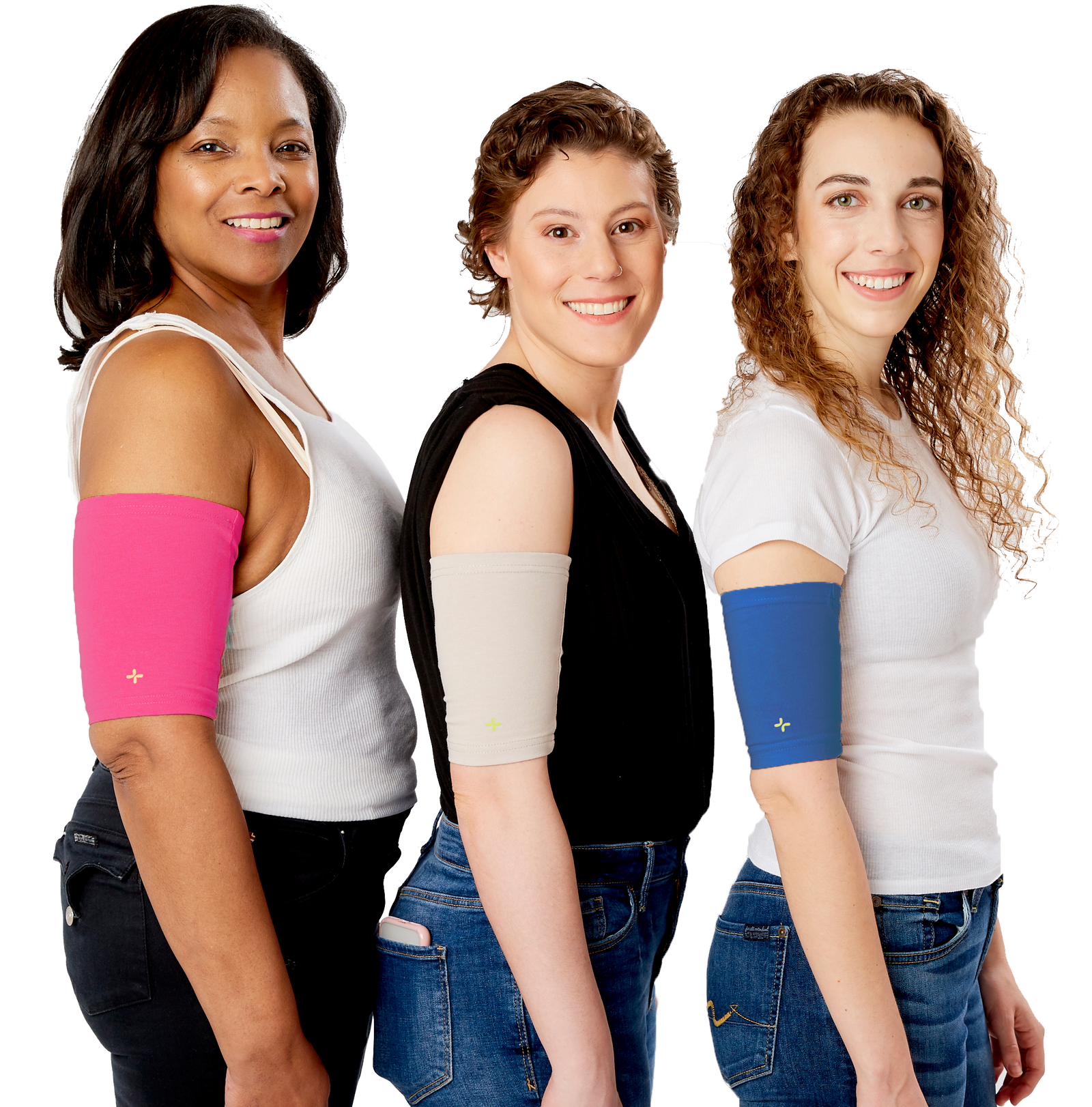
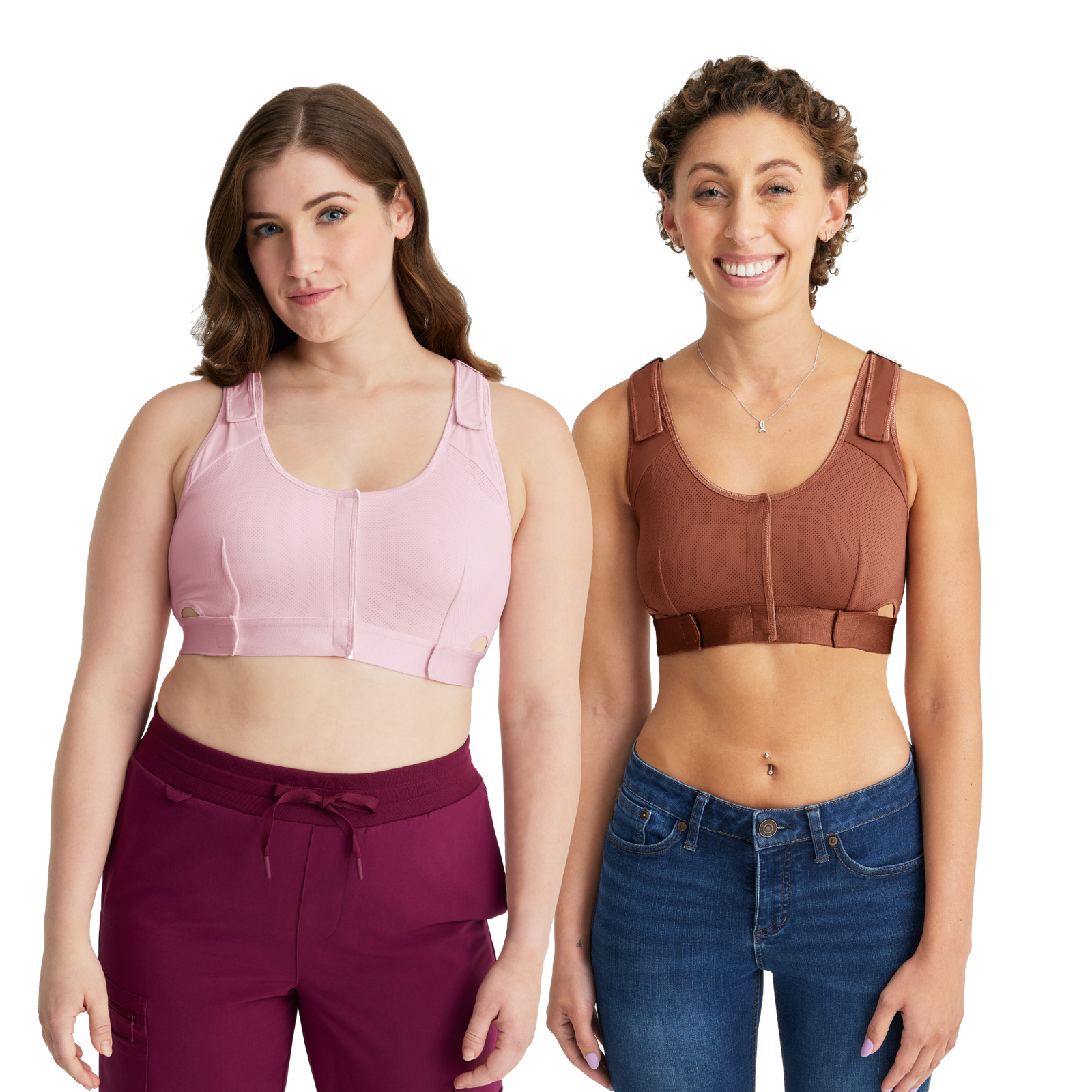
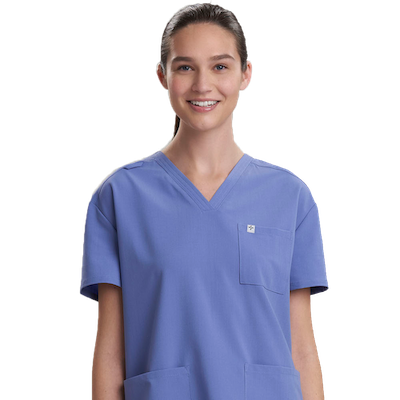
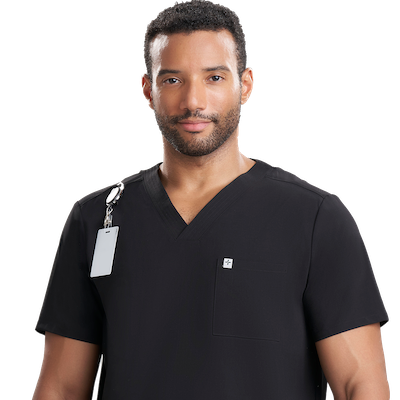
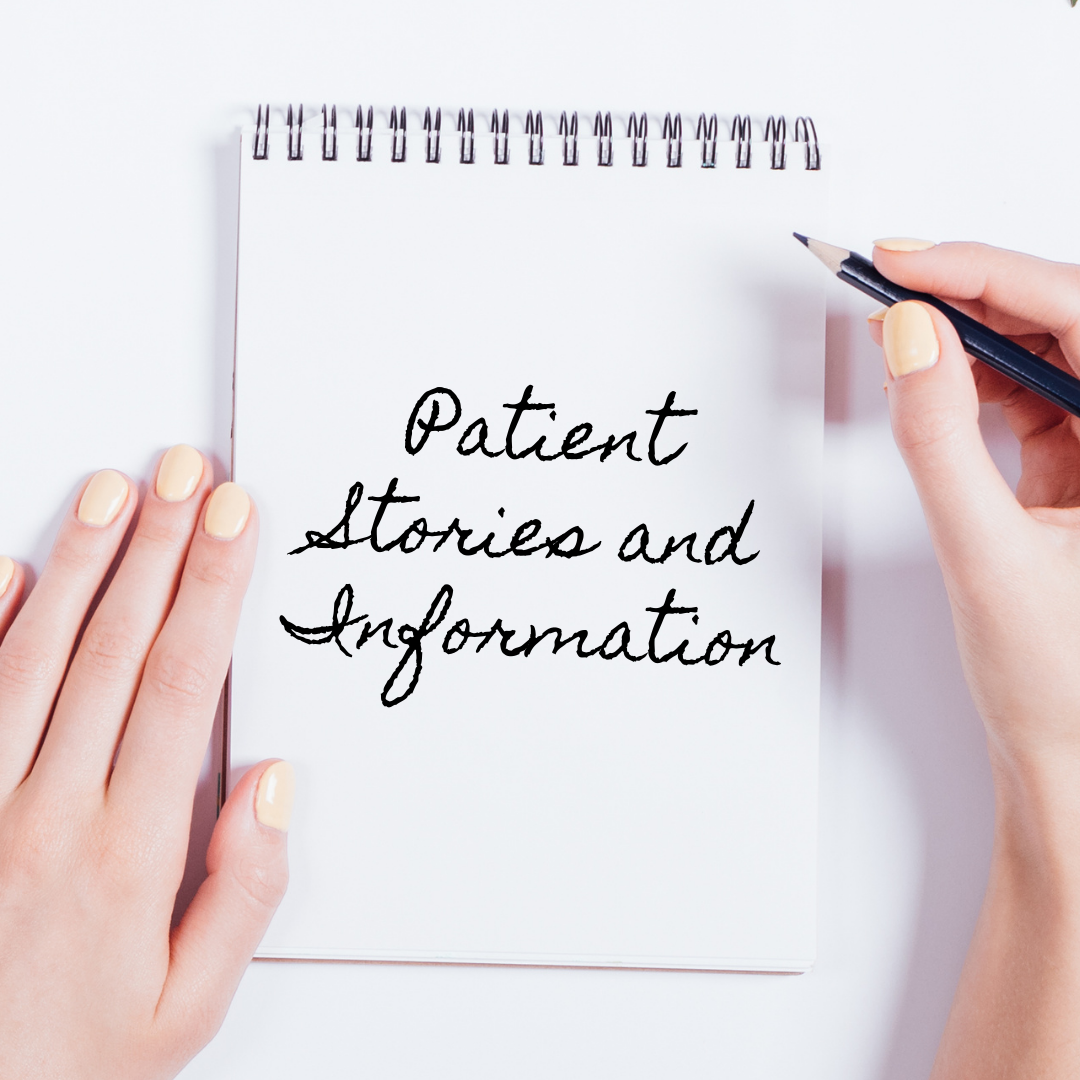


Sydni
December 18, 2024
Just stumbled on your list and it’s wonderful! I have a son with a chronic condition and we’ve had a couple emergency visits in the last few months. I know what we need, but throwing it all together last minute is hectic and wastes time, so I’ve decided to keep a “go bag” packed for him and myself.
I absolutely echo your thoughts about snacks and would say it is even more important if you have food sensitivities or allergies. They never seem to have anything that isn’t wheat-based at the ER nurses station. Gluten-free crackers and protein bars have saved us, especially late at night when the cafeteria is closed. Just be sure to ask your care team before you eat or feed the patient because the doctors may want them to have an empty stomach for certain tests, procedures, etc.
I agree with the comment about a hair brush and I would also add make-up wipes, nail clippers, and lip balm to my list of must-haves. When there is an emergency, you don’t think about needing makeup remover, but trying to remove waterproof mascara with hospital soap is NOT something I want to repeat. I’m a nail biter when nervous, and with all the germs at the hospital that’s a bad idea. So nail files or clippers can help me take care any rough spots that might make me want to tear or bite. Also the hospital air is super dry to prevent infection, so a heavy lip balm or a multi-purpose balm like Vaseline is a must and it can double as hand salve or cuticle cream.